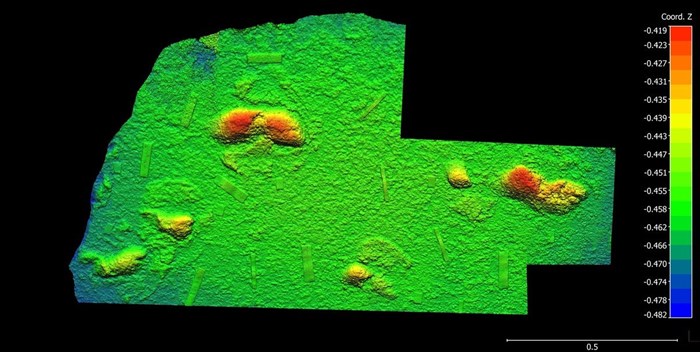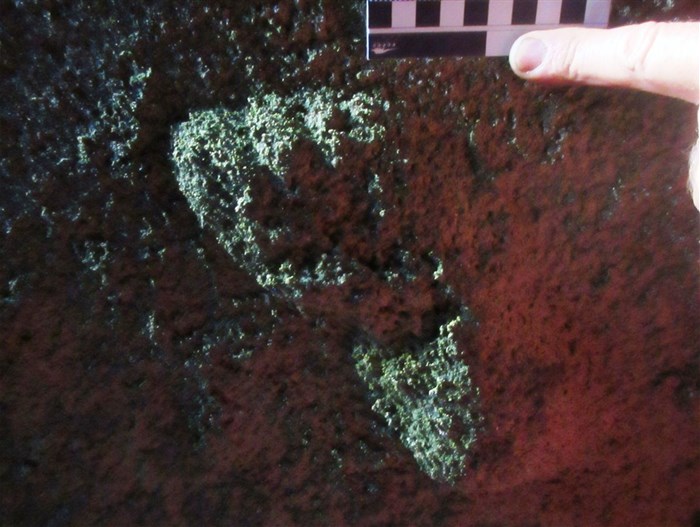An international team of researchers led by Dr Charles Helm has discovered Late Pleistocene Hominin tracks along the Cape South Coast. According to the research, published in Scientific Reports last month, up to forty hominin tracks are evident in the form of natural casts on the ceiling and walls of a ten-metre long cave.

3D image of a portion of the northern surface (courtesy of Richard McCrea)
Helm explained that a number of individuals – most likely Homo sapiens – made those tracks some 90,000 years ago when the shoreline would have been about 2km further out. “This discovery adds to the sparse global record of early hominin tracks, and represents the largest and best-preserved archive of Late Pleistocene hominin tracks found to date.”

Left natural cast track showing four toes; 10 cm scale bar (photo credit Charles Helm)
Wesgro CEO, Tim Harris, viewed this discovery as a major opportunity to tell the story of the Cape’s fascinating history, and rich cultural heritage. “Like the Cradle of Humankind has demonstrated in Gauteng, our country is able to position itself as a must-see destination for those interested in major fossil discoveries. This particular revelation in the Cape can allow us to position ourselves as part of this story, which is of keen interest to both South Africans and foreign travellers. We will be looking at ways, through our Destination Marketing Organisation at Wesgro, to do just this and help put the Western Cape on the global heritage map.”
Western Cape Minister of Cultural Affairs and Sport, Anroux Marais said: “The latest fossil discovery once again places the spotlight on the Western Cape as a region of human cognitive development. The research conducted by Dr Helm and other scholars will indeed contribute to our departmental objective of building a socially inclusive province and justifies the need to establish a Cultural Heritage and Tourism Route that promotes the Western Cape’s archaeological and paleontological heritage. The department will continue to collaborate with scholars in order to promote the discovery of new scientific knowledge about our ancestry and history.”
Western Cape Minister of Economic Opportunities, Alan Winde, added: “South Africa is regarded around the globe as a place of great heritage significance. This find, on the Western Cape South Coast, is set to draw travellers to our region who are eager to go back in time to discover the history of our species. As part of our Project Khulisa economic strategy, we have set ourselves the goal of boosting jobs and growth through heritage tourism. This new site will no doubt become one of the treasures in our heritage chest.”
















































